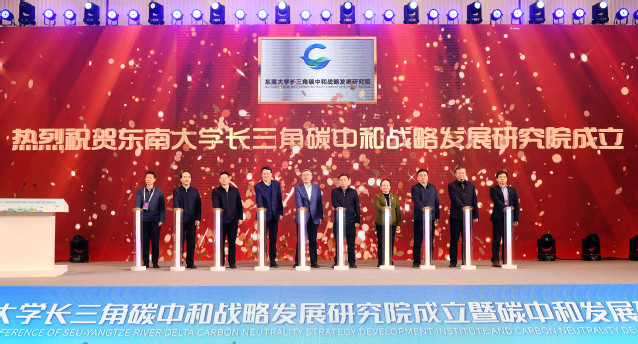
On Dec 11, the Southeast University Yangtze River Delta Carbon Neutrality Development Workshop opened at Nanjing Jiangbei New Area. At the workshop, the SEU-Yangtze River Delta Carbon Neutrality Development Institute launched. Xie Zhenhua, the special consultant for climate change of the Ministry of Ecology and Environment and Institute of Climate Change and Sustainable Development of Tsinghua University, gave an online speech. Zhang Jinghua, member of the Standing Committee of Jiangsu Provincial Party Committee and Secretary of Nanjing Municipal Party Committee, Zuo Wei, Party Secretary of Southeast University attended and unveiled the institute. Zhu Xiaoming, director of the Ethnic, Religious and Overseas Chinese Affairs Committee, Standing Committee of the Provincial People's Congress and president of the Carbon Institute, Ding Hui, Vice President of Southeast University, Shen Jiong, former vice President of Southeast University, and heads of relevant functional departments attended the workshop.
In his speech, Yang Weimin affirmed the strategic insight of establishing the Carbon Institute. Achieving carbon neutrality is not only a great goal and challenging task, but also brings tremendous opportunities.
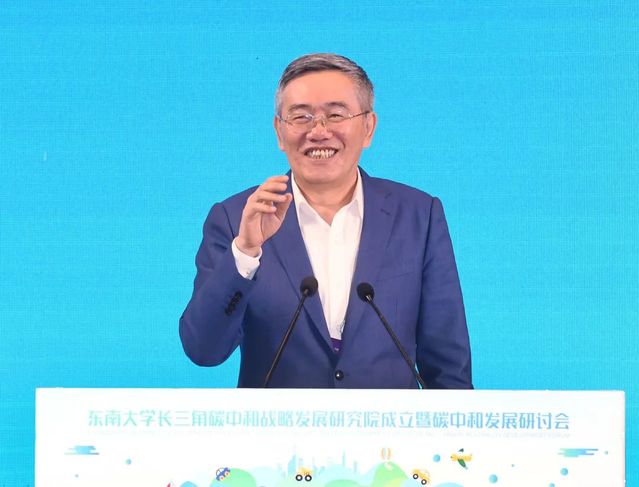
Zuo Wei delivered a speech on behalf of Southeast University. He expects the institute to be an important media for Southeast University and related industry in Nanjing to strengthen cooperation and promote high-quality innovation, make new contributions to national strategy and local economic and social development, and the early realization of carbon of peaking and carbon neutrality.
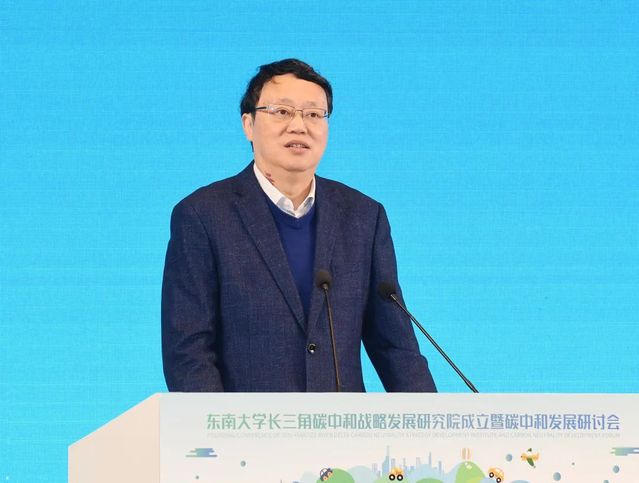
Zhang Jinghua said that at the new development stage, Nanjing will make explorations and contribute to low-carbon development. Nanjing will build a green, low-carbon energy system and promote the deep integration of technology and environment, and adapt the urban energy system to high-quality development.
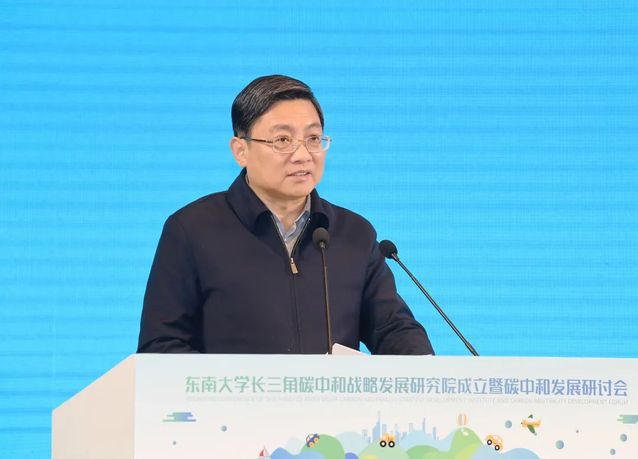
Yang Weimin, Zhang Jinghua, Zuo Wei, Zhu Xiaoming, vice director of the provincial Development and Reform Commission and director of provincial Bureau of Energy Ji Ming, vice director of provincial Bureau Ecology and Environment Zhang Minghua, municipal committee, Jiangbei New Area Party Working Committee vice Secretary Luo Qun, the standing committee of the municipal party committee and vice mayor Yang Xuepeng, the standing committee of the municipal party committee and the secretary-general Jiang Yuejian, and Ding Hui unveiled the SEU-Yangtze River Delta Carbon Neutrality Strategy Development Institute.

Director of Nanjing Development and Reform Commission Xu Ming, and CEO and president of Energy Foundation China Zou Ji signed a strategic cooperation memorandum of understanding, Cai Liang, Xu Ming, secretary of Nanjing Bureau of Ecology and Environment Qian Feng, director of the Yangtze River Ecological Civilization Innovation Center Li Aimin jointly signed the cooperation framework.
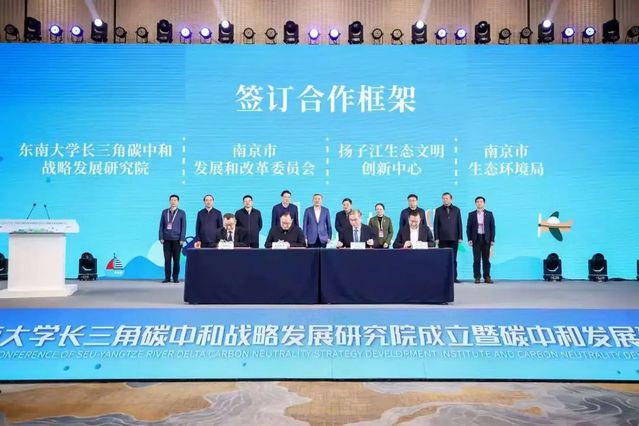
Experts and scholars in climate change, urban environment, and green, low carbon and comprehensive usage of power gathered at the workshop and discussed the policy, planning, and technical support of low carbon development, and the paths to carbon emission peak and neutrality.
Li Zheng, executive vice president of the Institute of Climate Change and Sustainable Development at Tsinghua University, Pan Jiahua, director of the Institute for Urban and Environmental Studies at the Chinese Academy of Social Sciences, Xu Lin, chairman of the China-US Green Fund, Zou Ji, CEO and president of Energy Foundation China, and Shen Jiong delivered keynote speeches. Shen Jiong said that low carbonization of energy systems (power and heat) is the key to achieving carbon peaking by 2030 and carbon neutrality by 2060. It is necessary to improve the operation flexibility (deep peak adjustment) of coal power units, take in more renewable energy, and promote the integration of fossil fuel energy and renewable energy.
Leaders of Nanjing departments and institutions, as well as many well-known scholars from Tsinghua University, Chinese Academy of Social Sciences, Shanghai Jiao Tong University, University of Science and Technology of China, Zhejiang University, and other universities and research institutes, attended the ceremony.


